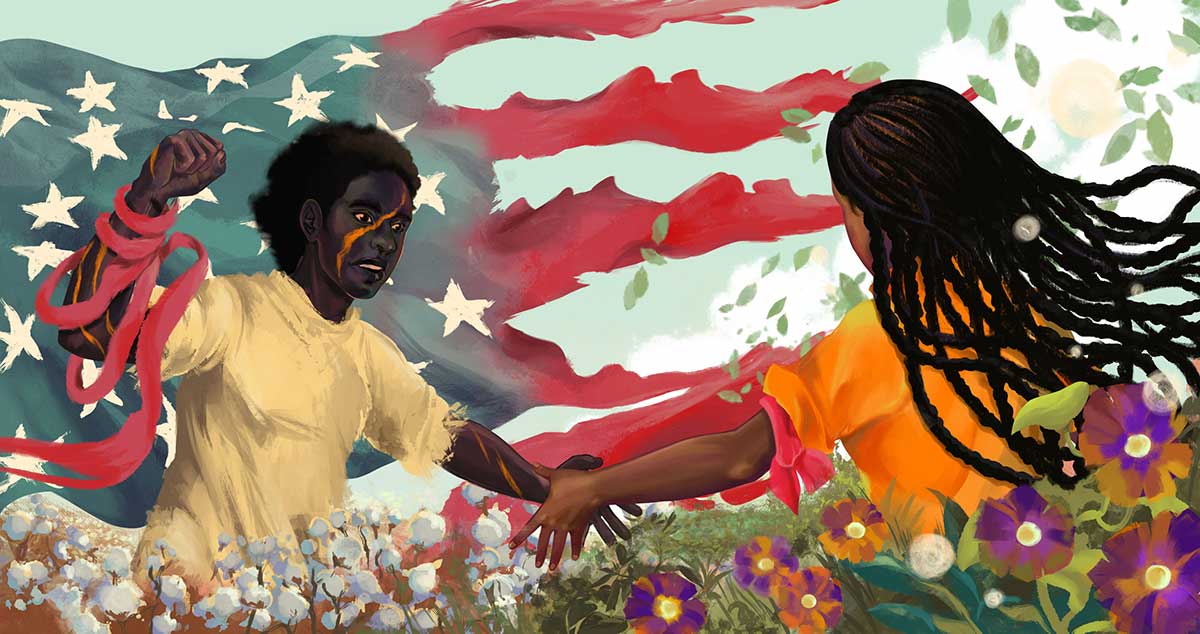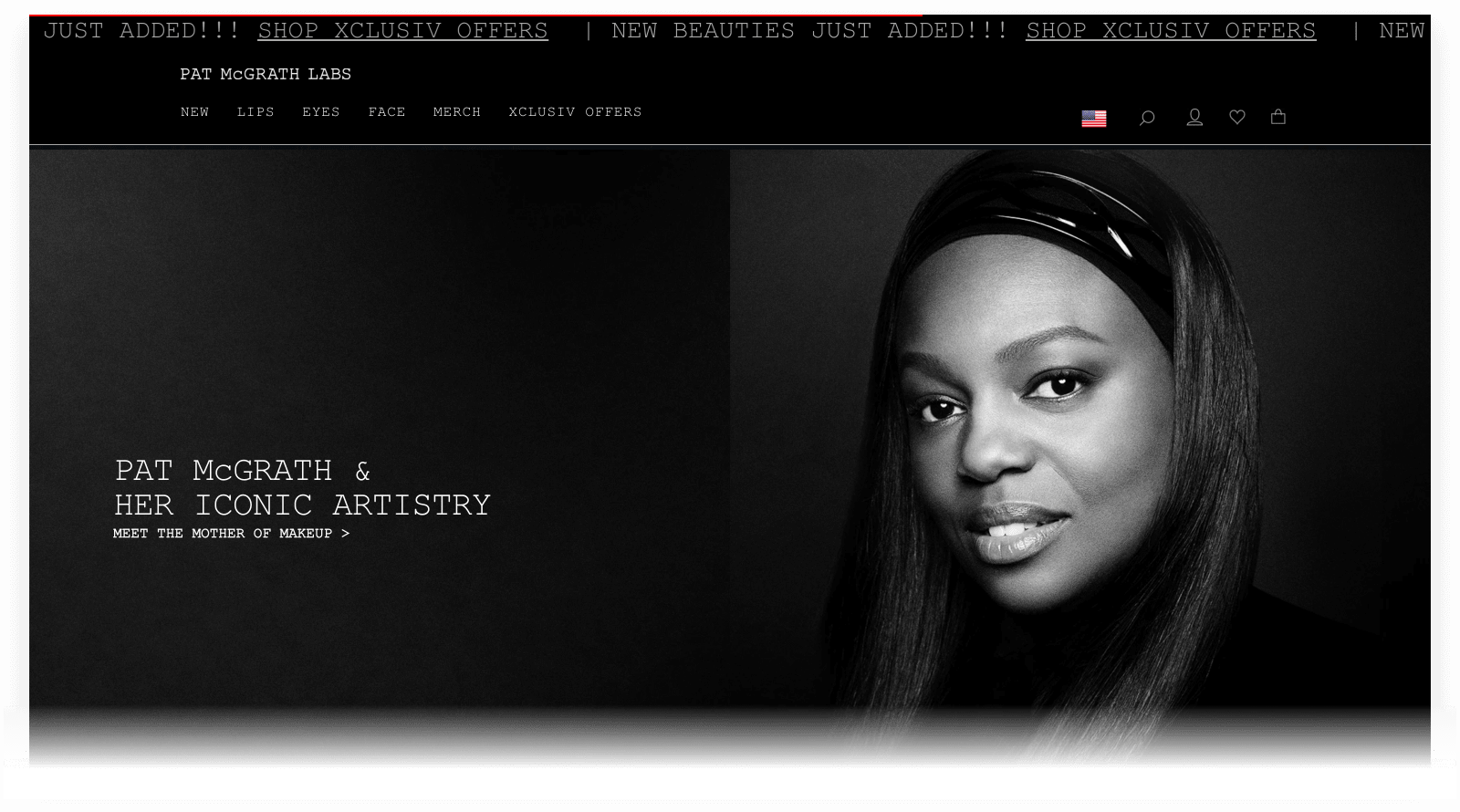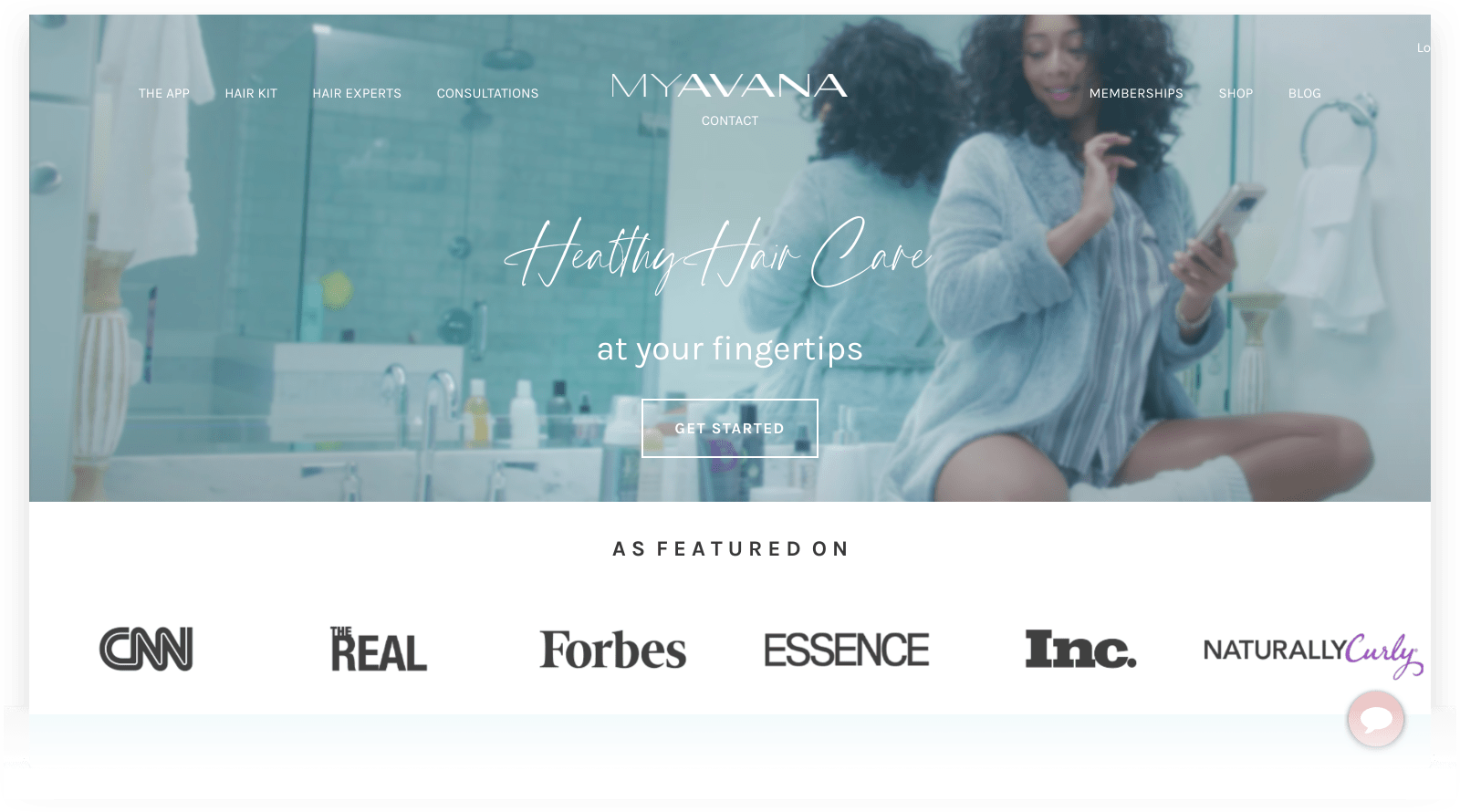
Art commissioned from Ala Lockhart
To market or not to market during Juneteenth?
If you’re familiar with its history, the question alone can make you uneasy.
Saying the wrong thing, doing too much, or giving the slightest impression of “capitalizing” … can assemble Cancel Culture at your digital doorstep.
Does it have to be that way? Not at all.
Juneteenth can be united with your marketing. But not necessarily how you might think.
What Is Juneteenth? History and into the Present
Juneteenth’s roots began on Jan. 1, 1863, when — amid the Civil War — Abraham Lincoln issued the Emancipation Proclamation:
“All persons held as slaves within any State, or designated part of a State, the people whereof shall then be in rebellion against the United States shall be then, thenceforward, and forever free.”
Although legally freed, the realization of that promise depended on military enforcement.
As one of the most remote states in our fractured union, it wasn’t until two and a half years later — on June 19th, 1865 — that Major General Gordon Granger arrived in Galveston, Texas.
As his troops marched through town, from the Union Army Headquarters to the then-named Negro Church on Broadway, they read aloud General Order No. 3:
“The people of Texas are informed that, in accordance with a proclamation from the Executive of the United States, all slaves are free. This involves an absolute equality of personal rights and rights of property between former masters and slaves.”

Empathize for a moment.
What emotions do you believe were at the forefront? Anger, joy, gratitude? Can you imagine it? Can you feel it?
Remember these feelings as we dive into creating stories that embody the essence of what this moment is about.
The first recognized celebration was held in Galveston, Texas in 1866. The day included church services, singing, and connecting with long-lost loved ones. After decades of being separated, some families were reunited and a stronger sense of community was growing.
Fast-forward to 2020: the Black Lives Matter movement took center stage and became a focal point not only for social justice, but also for commerce.
Numerous brands released social-media statements, created advertisements, and even bombarded inboxes. Search term popularity for Juneteenth skyrocketed as consumers and companies discovered this seemingly new holiday.

In contrast, other companies made real social change within their organizations. Some paused paid advertising to foster a digital space for rest and healing.
Others amplified the voices, culture, and triumphs of ‘unconventional’ stories.
Your goal must be the same. To create an authentic space for the Black community to show up — unapologetically — and then sustain it.
Why It’s About Commitment & Community, Not the ‘Sale’
As with all cultural moments, sensitivity and care must be our top priorities.
This is not the time to capitalize. It’s not equivalent to other holidays that lend themselves to commercialization; emotions and meaning buried beneath a colorful pile of knick knacks at your local Walmart.
If you want to participate, it starts with your brand’s interior.
Walk It ... Like You Talk It
Before you draft a marketing campaign for Juneteenth 2021 — or any cultural holiday — take an honest look at your brand. Search for inconsistencies that would be in conflict with Juneteenth.
- Is your organization’s culture inclusive?
- Does your leadership display representation?
- Are your client-facing efforts demonstrating diversity and inclusion?
Trust has to be established first. You must do the groundwork before attempting to dive into traditional marketing avenues.
Let’s take a look at a few of the big steppers …
Cases for the Culture
McDonald’s
Since 2003, McDonald’s “365 Black” has celebrated and shared Black culture with the world.
To double down on that initiative, it set up a sustainable system within the company that includes scholarships, promotional opportunities, and diversity at the executive leadership level.
It has since refreshed the campaign into Black & Positively Golden, where it continues to provide educational opportunities for the economically disadvantaged.

The North Face
The murders of Breonna Taylor and George Floyd sparked national outrage. The outrage caused a domino effect in companies taking a public stand against police brutality and racism.
The North Face launched “Never Stop Standing Up” to fight inequality in exploration for Brown and Black people. It also financially backed programs like Outdoor Afro while partnering with Lena Waithe to further expand the Explore Fund.

Nike
Nike’s commitment to racial equality was put to the test in 2018. After Colin Kaepernick was ostracized from the NFL for kneeling during the national anthem, Nike stood-by the athlete. It has since pledged over $150 million to fight racism and social injustice.
Though not without missteps, Nike’s support continues through its “Black Community Commitment” and by making Juneteenth a paid company holiday.

Strategies for Marketers
As marketers, you have to ask yourself: Is monetizing pain worth the profit? That’s the risk.
To avoid that, your marketing calendars may need an overhaul. There are a few options for respectfully celebrating and participating.
1. Take a moment of paid silence & paid time off
During Juneteenth, the best marketing could be no marketing.
It’s okay to take a day off from ads to make space for Black Americans to celebrate without feeling like they’re being taken advantage of.
On June 2, 2020, one week after the Minneapolis protests, FENTY opted to halt all operations of its three brands. This was in direct support of Blackout Tuesday, a social media movement aimed at protesting police injustice.
Despite the absence of a federal holiday designation until earlier this year, other companies like Lyft, Mastercard, and JP Morgan Chase adopted Juneteenth as an annual paid holiday.
2. Align with causes that fight for social justice
You also build trust by collaborating with organizations that impact the lives and businesses of Black Americans. This could mean establishing long-term relationships with causes like Georgia Black United or other nonprofits.
For example, Tapestry INC — the parent company of Coach — recently partnered with the Black In Fashion Council by taking the Active Allyship Pledge. The brand has also launched partnerships with seven Historically Black Colleges and Universities (HBCUs) to scout for new talent and funded the Dream It Real Scholarship.

3. Highlight Black-owned brands in your vertical
One of the best ways to show allyship is to help marginalized founders. Use your brand’s position to amplify Black-owned brands. This is especially powerful in underrepresented industries.
The Sephora Accelerate program does just that by creating a partnership with Sephora and BIPOC founders to increase visibility. One of its biggest successes, Topicals, sold out within 48 hours.
Back to back sold out retail launches in under 48 hours! @TOPICALS @Sephora 🎉 pic.twitter.com/Yi3YWXYcz1
— Olamide (@OlamideAOlowe) March 25, 2021
28 Black-Owned Ecommerce Businesses to Buy From & Back
In 2020, coronavirus hit Black businesses the hardest.
Despite the massive amounts of funding provided from the federal government, only 12% of Black and Hispanic business actually received funding.
A boost in profits during this time is a perfect way to show your support.
Beauty, Hair & Cosmetics









Food & Beverage



Fashion & Apparel





Retail


Accessories & Jewelry





Health & Wellness




Sustainability: Keeping the Culture Alive
You wanna participate in Juneteenth, huh?
… but are you willing to do the work?
Black Americans don’t need another feel-good ad from brands who just want to be seen.
What it boils down to is how well you genuinely and deeply embed cultural sustainability into your brand identity. It also requires you to consistently show up and support the Black community long after June 19th has come and gone.
Common Thread Collective is the leading source of strategy and insight serving DTC ecommerce businesses. From agency services to educational resources for eccomerce leaders and marketers, CTC is committed to helping you do your job better.
For more content like this, sign up for our newsletter, listen to our podcast, or follow us on YouTube or Twitter.